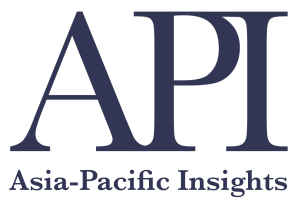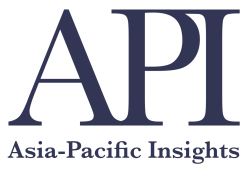July 31, 2024 |
SOUTHEAST ASIA ROUNDUP

By API Desk | Date 07-31-2024
Russia, China creating new security architecture in Eurasia
The foreign ministers of China and Russia have agreed to create a new security architecture for Eurasia, vowing to fight interference in regional affairs by outside forces.
At the sidelines of the annual Association of Southeast Asian Nations (ASEAN) ministerial meeting in Laos, Beijing’s Wang Yi and Moscow’s Sergei Lavrov agreed to build a regional military alliance to combat “certain countries.”
Without mentioning the United States, Lavrov said the country was creating “a narrow alliance” with other Asian states for “military-political mechanisms aimed at undermining security and stability in the Asia-Pacific region.”
While there are no details yet on the proposed security architecture, some experts believe Russia and China would expand membership to the Shanghai Cooperation Organization (SCO).
Only Cambodia and Myanmar have engaged with the SCO as a dialogue partner, but other ASEAN members may be interested in joining the bloc.
ASEAN condemns violence in Myanmar
Foreign ministers from nine Southeast Asian states condemned the continuing violence in Myanmar but continued to find ways to resolve the crisis.
In a joint communique at the end of the Association of Southeast Asian Nations (ASEAN) summit in Laos, the ministers demanded Myanmar implement a five-point consensus reached in 2021 to end violence and free political prisoners, including civilian leader Daw Aung San Suu Kyi.
Indonesia’s Foreign Minister Retno Marsudi said Myanmar’s generals were unwilling to engage with a regional peace plan to resolve the crisis despite the junta previously agreeing to the five-point peace plan.
However, Myanmar’s generals had ignored the plan which led to ASEAN barring Myanmar from attending high-level meetings after the 2021 coup.
It had previously refused to send “non-political representatives” to attend ASEAN meetings.
ASEAN, China remain deadlock on a Code of Conduct
China and the 10-member Association of Southeast Asian Nations (ASEAN) remain in a deadlock in a regional code of conduct in the South China Sea for two decades after the deal was hatched in Phom Penh.
Diplomats said ASEAN foreign ministers pushed for a conclusion of the code of conduct with Beijing on the South China Sea after a framework was agreed in Manila in 2017.
Diplomats said Manila tried to insert a paragraph on what had happened in Ayungin Shoal on June 17 when a sailor lost a finger in a clash with China.
Manila and Washington accused China’s coastguard of hostile actions in Ayungin Shoal and two other features in the West Philippine Sea. However, China also accused Manila of deliberate provocations.
Manila proposed the creation of an ASEAN Coast Guard Forum to enable dialogue and law enforcement, a plan opposed by China.
Indonesia said it is hopeful a code can be concluded by 2026. However, security analysts wondered if a binding or enforceable text could be achieved.
Blinken, Wang meet to resolve differences
US Secretary of State Antony Blinken held talks with China’s foreign minister on the sidelines of an ASEAN summit, a part of a multi-nation Asia visit to reinforce regional ties in the face of an increasingly assertive Beijing.
The high-level talks come at a time of high tensions in the South China Sea, where a series of clashes have taken place in recent months between Philippine and Chinese vessels in the West Philippine Sea.
China had protested after Blinken said that Washington was ready to defend the Philippines if its forces, ships, or aircraft came under attack in the South China Sea.
China said the United States has “no right” to interfere in the South China Sea.
The two countries also remain at odds over trade, human rights, and the status of the self-ruled island of Taiwan, over which China claims sovereignty.
Blinken has prioritized promoting a “free and open” Asia-Pacific region— a thinly veiled criticism of China’s regional economic, strategic, and territorial ambitions.
Tags: Politics, Security , Regional News
